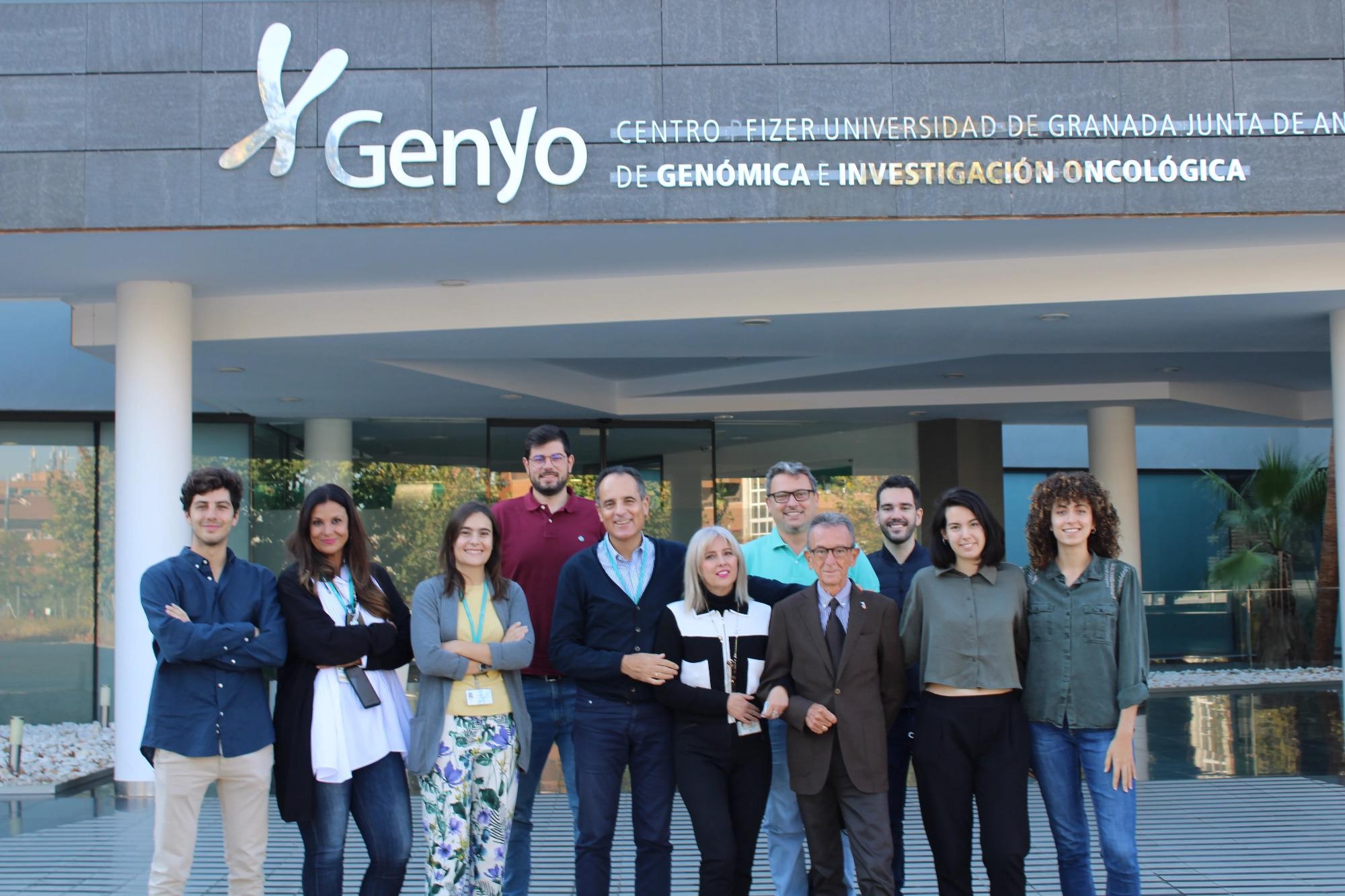The Liquid Biopsy and Cancer Interception research group—part of the Biohealth Research Institute in Granada (ibs.GRANADA), in which researchers from the University of Granada (UGR) participate—has discovered that tumor cells pass themselves off as platelets to go undetected in the bloodstream.
 Liquid Biopsy and Cancer Interception research group. Image Credit: University of Granada
Liquid Biopsy and Cancer Interception research group. Image Credit: University of Granada
This finding constitutes a paradigm shift in terms of how the metastatic process unfolds, and may contribute not only to a better understanding of the tumor process but also to the development of treatments for intercepting the process of tumor dissemination and, ultimately, the appearance of metastasis.
Metastasis is the leading cause of cancer-related death, due to the release of tumor cells from a primary tumor into the bloodstream, where they can travel to another organ and create a secondary tumor. These cells are known as Circulating tumor Cells (CTCs) and, despite being known for their prognostic and predictive value as cancer biomarkers, little is known about their biology. CTCs are capable not only of detaching from the tumor mass but also of withstanding attacks from the immune system and colonizing distant organs.
This team of scientists from ibs.GRANADA , the UGR, GENyO, and the 'Virgen de las Nieves' Teaching Hospital in Granada have demonstrated for the first time that platelets are capable of transferring biomolecules such as lipids, proteins, and ribonucleic acid to the CTCs, which helps them to go unnoticed in the bloodstream. In other words, tumor cells acquire part of the configuration of platelets to 'trick' the body into believing they are platelets, enabling them to take over other organs.
Therefore, this study reveals how platelets can phenotypically, genetically, and functionally modify tumor cells, indicating which ones could play a crucial role in metastasis by interacting with and modifying CTCs.
This research was led by Dr. María José Serrano, researcher on the 'Nicolás Monardes' programme at the GENyO Center and in the 'Virgen de las Nieves' Teaching Hospital. The study was the result of collaboration with Dr. Pedro Real of the UGR, renowned oncologist Dr. Christian Rolfo of the Center for Thoracic Oncology at the Tisch Cancer Institute, Mount Sinai, member of the external advisory committee of ibs.GRANADA, and Dr. MassimoCristofanilli of the Robert H. Lurie Comprehensive Cancer Center of Northwestern University.
About the research group
The Liquid Biopsy and Cancer Interception research group of ibs.GRANADA is led by Dr. José Expósito Hernández and Dr. María José Serrano. It is an active research group with multiple ongoing collaborations with other groups at regional, national, and international levels. It aims to bring clinical and basic knowledge together in a practical, useful approach for patients and to support the evaluation of healthcare services.
Source:
Journal reference:
Rodriguez-Martinez, A., et al. (2022) Exchange of cellular components between platelets and tumor cells: impact on tumor cells behavior. Theranostics. doi.org/10.7150/thno.64252.